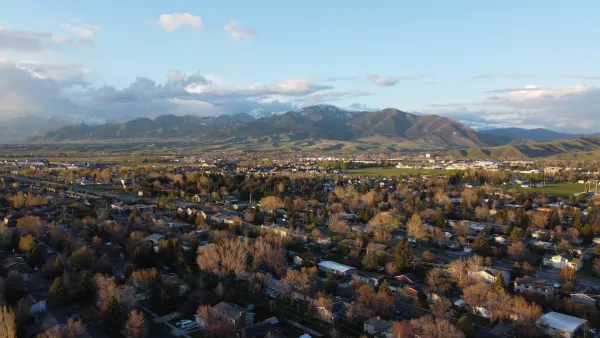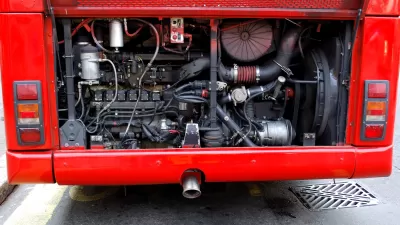New government efforts in South Africa are trying to improve mobility for those who rely on public transportation, walking and biking.
Progress is gradual, and the mobility issues facing the country are great.
"Sixty per cent of South Africans don't own private cars. They either walk or cycle to work – often an hour each way – or use public transport to travel the long distances created by sprawling, spatially segregated cities. The informal minibus-taxi industry takes the lion's share; the regulated rail and bus systems the rest. Public transport is, for the most part, unsafe, overcrowded, unreliable, expensive and run by operators who will at times (sometimes literally) kill their competition in order to keep their routes and licences.
The vast majority use it because they have no other choice. They can't afford the transport, public or private, that they'd prefer. Like Nyati, most commuters dream of owning their own vehicle. No matter how rusty, beaten up and unroadworthy a car might be, having your own offers the door-to-door flexibility that public transport does not. The magic number is R3,500 (about $452) – the monthly income at which low-income earners start putting out the word that they're looking for a used car."
FULL STORY: South Africa Renews Rail in Push to Reduce Congestion

Maui's Vacation Rental Debate Turns Ugly
Verbal attacks, misinformation campaigns and fistfights plague a high-stakes debate to convert thousands of vacation rentals into long-term housing.

Planetizen Federal Action Tracker
A weekly monitor of how Trump’s orders and actions are impacting planners and planning in America.

In Urban Planning, AI Prompting Could be the New Design Thinking
Creativity has long been key to great urban design. What if we see AI as our new creative partner?

Congress Kills Office Conversion Tax Credit
A federal tax incentive for energy efficiency upgrades is going away next year.

How the ‘Big Beautiful Bill’ Impacts Transportation
Five ways the bill negatively impacts U.S. transportation policy.

California Creates Housing-Focused Agency
Previously, the state’s housing and homelessness programs fell under a grabbag department that also regulates the alcohol industry, car mechanics, and horse racing.
Urban Design for Planners 1: Software Tools
This six-course series explores essential urban design concepts using open source software and equips planners with the tools they need to participate fully in the urban design process.
Planning for Universal Design
Learn the tools for implementing Universal Design in planning regulations.
planning NEXT
Appalachian Highlands Housing Partners
Mpact (founded as Rail~Volution)
City of Camden Redevelopment Agency
City of Astoria
City of Portland
City of Laramie




























